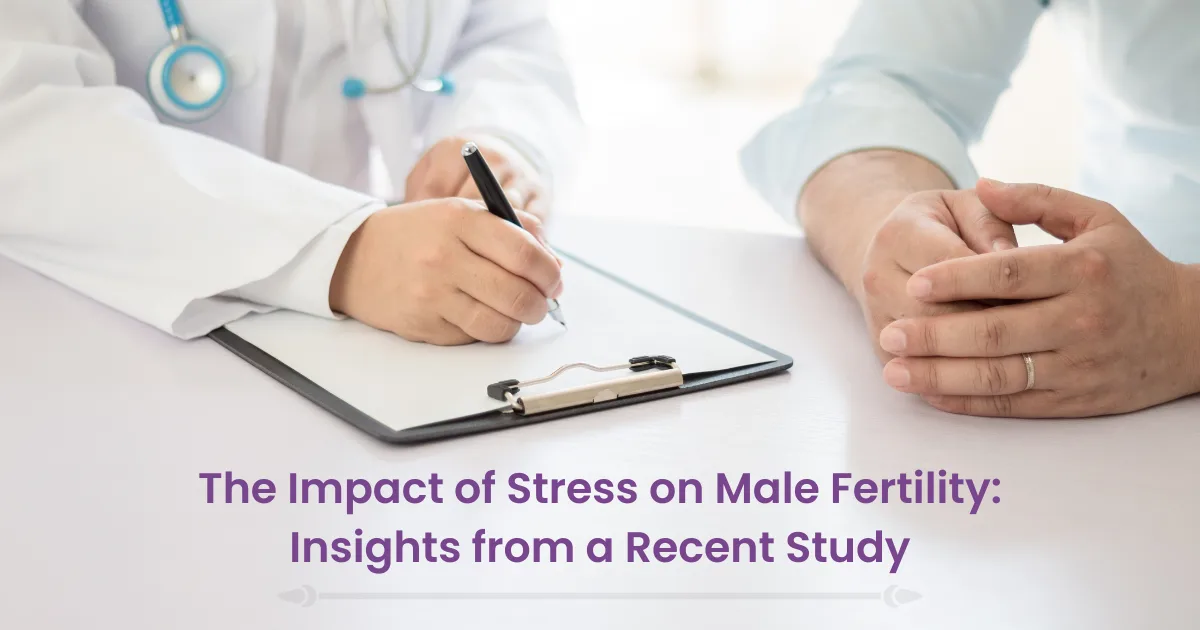Are you feeling stressed out? You may want to take a moment to consider how it could be affecting your fertility. A recent study has found that sub-chronic psychological stress can harm male fertility.
The study, conducted by a team of researchers at the BHU Central University, found that men exposed to stress had a lower sperm count and decreased sperm motility. This is not the first study to find a link between stress and male fertility, but it is one of the most comprehensive studies to date.
Why Is This Study Considered Significant?
Previous research has highlighted a global crisis in male reproductive health, with evidence of a decrease in sperm count and an increase in abnormalities of the male reproductive system.
However, the cause of these issues remains largely unknown, with nearly 50 percent of cases attributed to unknown factors. Now, the researchers at BHU Central University have made an intriguing discovery that sheds more light on this issue.
Related Read – What Happening To Sperm Counts Around The World
Essential Takeaways from the Recent Study on Sub-chronic Psychological Stress and Male Fertility
- The study, conducted on rats, found that adult rats subjected to stress experienced adverse effects on their fertility.
- The research team exposed the rats to sub-chronic stress for 1.5 to 3 hours daily for a period of 30 days and analyzed the quality and quantity of their sperm.
- Results showed a significant decline in daily sperm production, as well as changes in the internal structure of the testes.
- The researchers observed morphological abnormalities in the sperm, specifically in the epididymal spermatozoa. Tail abnormalities were more prevalent than head abnormalities.
- The stress also impacted hormone synthesis and caused an increase in oxidative stress in the testes.
- This study has the potential to open new avenues of exploration in the relationship between psychological stress and reproductive health.
How Is Psychological Stress Bad For Both Fertility & Overall Health?
While fertility experts have increasingly suspected the relationship between stress and fertility, all the news studies & research are suggesting it to be true. Psychological stress can have a negative effect on both fertility and overall health.
Stress can cause changes in hormone levels, which can disrupt ovulation and make it more difficult to conceive. Stress can also affect sperm quality and quantity in men, making it more difficult to father a child. Additionally, stress can have a negative impact on the overall health of both men and women, increasing the risk of chronic diseases such as heart disease and diabetes.
Stress can also weaken the immune system, making it more difficult to fight off infections. In some cases, it can also lead to mental health issues such as anxiety and depression.
The link between psychological stress and reproductive health is well established, and it is essential to recognize the detrimental effects of stress on both fertility and overall well-being. It is crucial to address stress, either through therapy, exercise, or mindfulness practices, in order to maintain a healthy body and mind.
Managing Psychological Stress for Improved Reproductive and Overall Health
There are several ways to tackle psychological stress to improve reproductive health and overall well-being. Some of these include:
- Exercise: Regular physical activity can help reduce stress and improve overall health.
- Diet and nutrition: Eating a healthy diet and maintaining a healthy weight can help to reduce stress and improve overall health.
- Sleep: Getting enough sleep can help reduce stress and improve overall health.
- Relaxation techniques: Practices such as yoga, meditation, and deep breathing can help to reduce stress and improve overall well-being.
- Therapy: Talking to a therapist or counselor can help individuals to understand better and manage their stress.
- Social support: Surrounding oneself with supportive friends and family can provide emotional support and help to reduce stress.
- Humor: Laughter and humor can help reduce stress and improve overall well-being.
It’s essential to understand that not all methods work for everyone, so finding the right stress-relief techniques may require some experimentation.
There’s no denying that adverse pregnancy reports can significantly impact a couple’s life. Still, it is essential to remember that acceptance is the key to overcoming this stress, not dwelling on it.
Additionally, seeking support and help if you’re struggling with emotional or mental stress affecting fertility is crucial. Getting the right support at the right time can make a difference.




